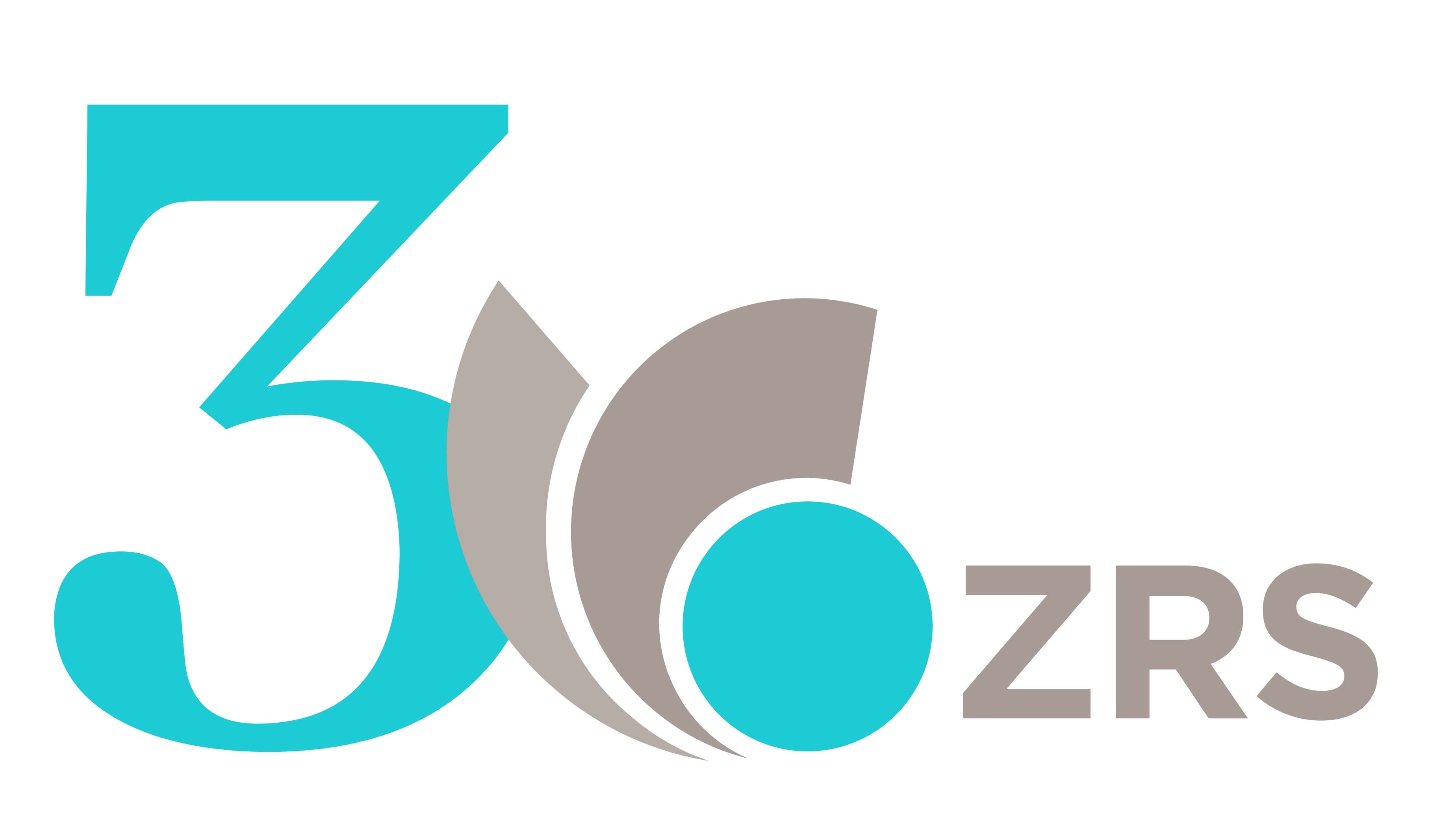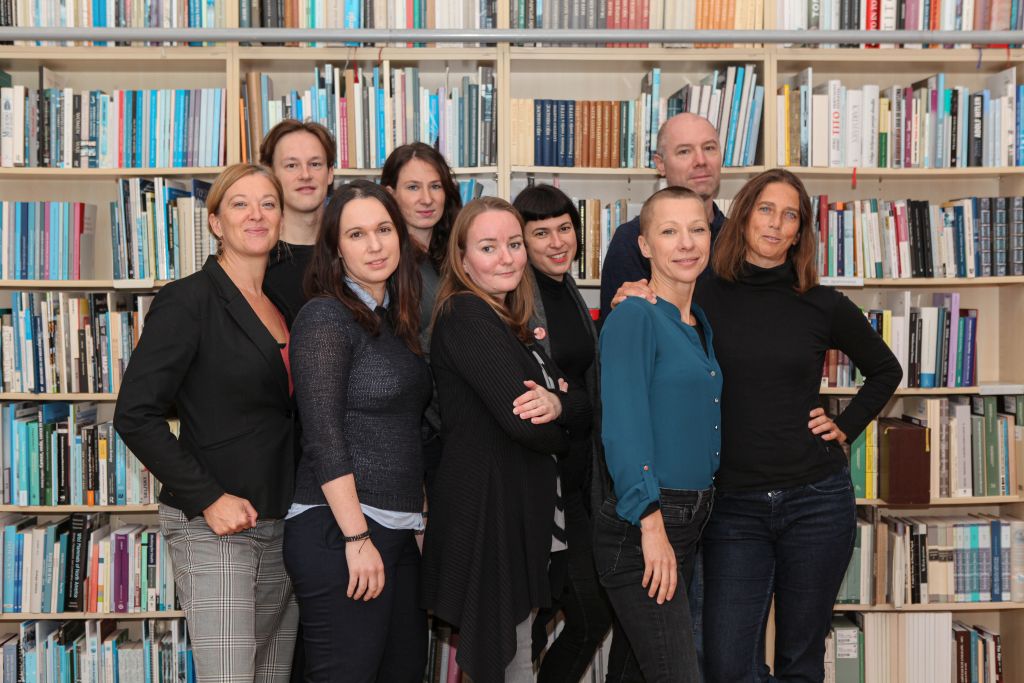
PRESENTATION
Researchers of the Institute for Social Studies are able to combine mutual diversities in a constructive manner and provide a critical response to the current social issues. We share an uncompromising commitment to the scientific ethics and strive towards international exchange and academic cooperation.
Who we are
The Institute for Social Studies has evolved from the Institute for Mediterranean Humanities and Social Studies, established in 2001 as the first institute launched by the Science and Research Centre. As an interdisciplinary institute, we combine sociology, media studies, cultural studies, anthropology and social geography. The main research areas of the Institute include ethnic and intercultural studies, migration, minority issues, areas of cultural contact, various aspects of everyday life and family life, human rights, marginalised groups and other topics.
Competences and achievements
The researchers of the Institute undertake both basic and applied research projects, produce scientific and expert reports, organize scientific and expert meetings and take part in national and international research projects. In terms of methodology and research, the Institute closely collaborates with the Public Opinion Research Centre at the Science and Research Centre Koper.
Mission and vision
In the academic context, the goal of the Institute is to develop and include topics in the field of social sciences (and humanities) that have not found their space in the wider society, to critically reflect on the current social events and to analyse topics related to the multicultural areas. Additionally, the vision of the Institute is to become the foremost interdisciplinary institute covering issues related to the intercultural contact in Slovenia and in the wider region. In the future, the Institute intends to achieve greater international involvement, expand the network of international partner institutions and strengthen links to the economic sector.
Head: Mateja Sedmak, PhD, Principal Research Associate
Email: izds@zrs-kp.si
Phone: +386 5 663 77 00
RESEARCHERS

Mateja Sedmak, PhD
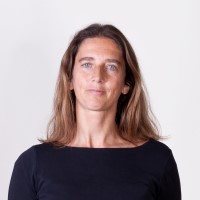
Zorana Medarić, MSc
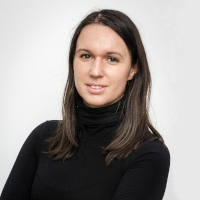
Lucija Dežan
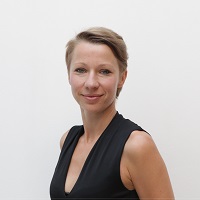
Barbara Gornik, PhD

Blaž Lenarčič, PhD

Ksenija Perković, PhD

Maja Zadel, PhD

Sandra Končan

Andraž Teršek, PhD


RESEARCH PROGRAMMES
Liminal Spaces: Areas of cultural and societal cohabitation in the age of risk and vulnerability (P6-0279)
This research programme will try to study the complexity of the problems proposed by using a combined and coordinated crossdisciplinary and interdisciplinary approach of internationally recognized groups of researchers from the fields of humanities (philosophy) and social sciences (sociology), thus deepening and expanding the work that has been successfully started and conducted by now. The studies in this programme will be focussed in particular on the liminal spaces, emerging within various cultural and societal areas, with their inherent risks and vulnerabilities analysed from the philosophical and sociological, but also broadly humanistic (feminist and gender studies, religious studies and cultural studies) points of view. Within recent developments – such as migration and humanitarian crisis in Europe and especially in the Mediterranean, political processes that threaten or even block further European integration and with the demise of the multi- or intercultural values and values of interreligious dialogue in favor or a more populist scenarios, we are in a need of a response and an indepth study of contemporary phenomena, related to the risks (tat are social and political) and vulnerabilities (as related to the human body and her/his identity) as present and detected in our societies and as found within communities that we are a part of. The main topics and objectives of this project will be: investigations into liminal spaces and borders shaping our lives in the age of uncertainty; studies of the elements of risk society with migration, especially as related to vulnerable bodies and identities of children/minors, women, migrants, dispossessed persons, religious minorities etc.; studies of cultural and societal liminal and contact areas in light of intercultural and interreligous dialogue; finally, peace building and studies in ethics and politics of hospitality and social and political cohabitation, also as related to the future role of Islam in Europe. Within the programme, we will innovatively apply the concept of caring democracy to the field of vulnerability and risk and propose a new view on social and political cohabitation in Europe and in the Mediterranean.
ARRS Code: P6-0279
Period: 1. 1. 2020 – 31. 12. 2025
Programme leader: Lenart Škof, PhD, Principal Research Associate
ONGOING RESEARCH PROJECTS
Freedom of opinion and expression through the narratives on the state of emergency: anthropological study of Slovenian (anti)democratic consciousness during the Covid-19 epidemics (J6-3128)
ARRS Code: J6-3128
Project duration: 1. 10. 2021–30. 9. 2024
Project leader: Barbara Gornik, PhD
Participating institute ZRS Koper: Institute for Social Studies
Web page
A child-centred approach to integrating immigrant children: the role of school in integration with regard to the parents’ aspect (Z5-3219)
ARRS Code: Z5-3219
Project duration: 1. 10. 2021 – 30. 9. 2023
Project leader: Maja Zadel, PhD
Project holder: ZRS Koper, Institute for Social Studies
FINISHED RESEARCH PROJECTS
Substantive Representation of Youth in Representative Bodies (J5-8241)
Modern democracies are closely related to the principle of representation. Representatives of the people, being individuals or institutions, should reflect the will of the people and organise their activity accordingly. As we have witnessed in the last few years, modern representative democracy is facing numerous challenges and criticisms, all of which have some connection to the question of the quality of representation. Trust in representative institutions as well as satisfaction with the functioning of democracy are extremely low, in some countries even reaching critical levels. Under the strain of this decline of trust in political representatives and institutions of democracy, it is no surprise to hear emerging voices questioning the validity of the contemporary form of representative democracy and even the concept of representative democracy itself. Nevertheless, citizens overwhelmingly still perceive democracy as the best form of government, which indicates the need to improve the current form and make it more responsive to the needs of citizens. Hence, the focus of contemporary debates should be centred around the quality of the current form of political representation, along with considerations of its vulnerability. This is in line with the evidence of misrepresentation of the citizenry in parliaments. The population most affected by this problem and also most hostile to this image of democracy is youth – a population with less than 2 per cent of representatives in national parliaments. The main challenge therefore entails the question of how members of parliament (MPs) understand and perceive their representational roles and, conversely, how citizens perceive MPs’ roles and behaviour. This project shall address two dimensions of representation; the style and focus of observed political representatives, which both have an impact on the characteristics and quality of representation as observed by citizens, primarily youth. Yet it seems more appropriate to talk about role-switching for representatives since they are not necessarily loyal to merely one style and focus of representation but self-perceive their roles as variable. In that sense, the issue of the determinants of those role-takings is crucially important. This research project aims to address the key issues of political representation and the problem of the transmission of citizens’ preferences to MPs and the question of the constraints citizens’ preferences may impose on MPs and their behaviour. We believe it is vital to identify the characteristics of representational roles (in terms of the style and focus of representation) and their determinants in order to combat the crisis of political representation. This may be achieved by implementing the first systematic and in-depth, face-to-face survey conducted among deputies of the National Assembly. Such research will be the first focused and all-embracing step in tackling the crisis of representative democracy in Slovenia. By performing an analysis of available secondary data, we initially aim to detect the main patterns of distrust across time as well as identify parts of the electorate that reveal the lowest trust in the parliament and satisfaction with democracy. This will serve as the basis for public opinion research conducted on the population of youth aged between 15 and 30 that will be proceeded by in-depth interviews with young individuals in order to gain a comprehensive insight into their standpoints and values. This study aims to provide a set of recommendations to address the identified shortcomings: a) a set of institutional changes (structure); and b) a set of recommendations targeting behavioural changes (agency) and ways to induce them.
Code number ARRS: J5-8241
Period: 1. 5. 2017–30. 4. 2020
Project leader: PhD Deželan Tomaž
Head of the project: University of Ljubljana, Faculty of Social Sciences
Institute of ZRS Koper: Institute for Social Studies
Slovenian Neighbouring Countries as the Content of the Curriculum of Primary and Secondary Schools in Slovenia (V5-1709)
The aim of the research project “Slovenian Neighbouring Countries as the Content of the Curriculum of Primary and Secondary Schools in Slovenia” is to present an analytical overview of how Slovene minority language communities settled along the Italian, Croatian and Hungarian neighbouring border areas are treated and presented through the prism of content defined by curricula in primary and secondary schools with respectively Slovene, Italian and Hungarian language. The findings of the research will introduce curricular renovation and implementation of changes in those primary and secondary schools curricula. In addition to the editing of the final proposal of curricular changes, the survey data of a sample made up both by school and the out-of-school population will analyse the knowledge about the Slovenian minority community and the views on the common Slovenian cultural space. Partners in the project (ZRS Koper, INV in Ljubljana and SLORI in Trieste) will collaborate in the implementation procedures further with the Office for Slovenians Abroad, the National Education Institute, the Ministry of Education, Science and Sport, and cultural societies and organisations in the Slovenian minority environment.
Code number ARRS: V5-1709
Period: 1. 4. 2018–30. 9. 2019
Project leader: PhD Milan Bufon, Principal Research Fellow
Head of the project: Science and Research Centre Koper
Institute of ZRS Koper: Institute for Social Studies
Identification, Classification and Potential Development of Social Tourism Products in Slovenia, Oriented Towards Senior Programmes (V5-1512)
The main objective of the project Identification, classification and potential development of social tourism products in Slovenia, was oriented towards senior programmes is to promote the increase of the competitiveness of Slovenian tourism in the field of the social tourism product development. Social tourism is also consistent with the principles of sustainable tourism development and brings numerous economic and social benefits for individuals and society as a whole. Since the potentials of social tourism in Slovenia are not sufficiently exploited, the aims of the project were (1) to analyse the situation in the field of social tourism in Slovenia, and (2) to analyse the developmental needs and potentials required in the field of social tourism product development in Slovenia, (3) to formulate proposals for systemic measures of sector policies, which will serve as a base for the development of competitive social tourism products and services in Slovenia, (4) to develop a prototype portal supporting the development and promotion of social tourism, and finally (5) to inform and disseminate the project results. The work methods that will be used in the project are, in addition to the analysis of literature, research and strategic documents, also a) semi-structured interviews with key representatives of social tourism in Slovenia – a qualitative research method, and b) an online survey distributed among the representatives of the tourist economy – a quantitative research method.
Code number ARRS: V5-1512
Period: 1. 10. 2015–30. 9. 2017
Project leader: PhD Emil Juvan
Head of the project: Faculty of Tourism Studies – Turistica, University of Primorska
Institute of ZRS Koper: Institute for Social Studies
Slovenians Socializing Between the Physical Space and Cyberspace (Z5-4059)
The proposed study will be the first on Slovene and international levels to comprehensively analyse the influences of Internet services on the socialisation of individuals both in physical and cyberspace. The key idea of the project is based on the premise that – compared to previous social forms – the specificity of contemporary relations and processes lies in the interlacement and interdependence of physical space and cyberspace. This is precisely the point that marks the originality of the proposed project, as in this study the relations and processes taking place in cyberspace and those occurring in physical space will be treated equally, whereas research practice to date has in most cases drawn a relatively sharp distinction between social dynamics occurring in physical space and its cyberspace counterpart, interpreting the former as real and the latter as imaginary or unreal. A type of such dynamics is the socialisation defined by the physical closeness of individuals, which in the circumstances of today’s society, characterised by the intertwining of physical and cyberspace or territorially independent activity of the agents, is no longer essential. In this sense the key objective of the project will be an analysis of the relationship between social activities of individuals in physical and cyberspace and consequently the establishment of basic characteristics of socialisation between individuals in contemporary society. At the same time, the study will test whether the use of World Wide Web services has a positive or negative influence on the social activities of the users in physical space. The socialisation of individuals will thus be set theory- and concept-wise in the paradigm of today’s society, which is increasingly passing from a territory- to network-based organisation. The contribution of the project proposed is also manifest and important from methodological and epistemological points of view, since it will adjust and improve the existing quantitative measuring instruments that gauge the “old” forms of social activities to suit the conditions governing contemporary society. In its further development of the basic topic, the study will also contribute to the understanding of the operation of today’s society, particularly in terms of interpersonal communication and networking between agents.
With the project proposed being a basic research study, we can principally expect it to enable the implementation of scientific findings in social development planning. Seeing that Internet services will be one of the subjects of intensive research, it should be pointed out that the results will to some extent also benefit the developers of such applications intended for communication between users. In this context the purpose of the study is particularly relevant from the point of view of integrating social aspects into the field of information science.
Code number ARRS: Z5-4059
Period: 1. 7. 2011–30. 12. 2013
Project leader: PhD Blaž Lenarčič, Research Fellow
Head of the project: Science and Research Centre, University of Primorska
Institute of ZRS Koper: Institute for Social Studies
Multicultural European Regions between Social and Spatial Convergence and Divergence (J6-3605)
The study of concurrent processes of social and spatial convergence and divergence was one of the key factor in understanding the possibility of not only horizontal, but also vertical integration in Europe, and thereby of the hindering and promoting elements and factors of the new European paradigm “unity in diversity.” The research project was focused on a comparative coverage of European border and multicultural regions, where the processes of social and spatial convergence and divergence were most pronounced, enabling the development of potential conflict and co-existential social relations, as well as “open” and “closed” spatial policies. In this sense, the aim of the project was to develop a new integration model through understanding and directing the prospects of development in multicultural and border regions, a model that would check – based on the example of Slovenia and its contact areas – the comparative development possibilities for horizontal and vertical integration processes in the future united Europe.
Within a wider political-geographic framework and based on a special methodology, developed by the project leader, the research examined in detail the typology of border areas, the degree of functional and sociocultural integration among the border population, the forms of institutional cross-border cooperation, and the degree of consistency between social and spatial planning on the example of Slovene and other analogous European multicultural areas. The project examined the elements and factors promoting or hindering cross-border communication and integration, and within this frame also the position and role of local communities and minorities in intercultural and functional social cooperation. In addition, the project dealt with the impacts of establishment and elimination of border barriers on society and space in the period following Slovenia’s entering into the European Union and the Schengen area, while also conducting comparative studies of processes and problems of border and contact areas on Slovene and broader European levels, especially in relation to the western European practice of institutional integration, central European functional cross-border cooperation and the still unsolved problems of contact areas of potential conflict in south-eastern Europe. Further on, problems concerning spatial deconcentration and decentralisation as well as sustainable spatial development were examined. This contributed to the development of a more efficient organisation of space for the purposes of cross-border planning and more adequate spatial policies on national and transnational levels, taking into consideration the problems of spatial organisation in implementing European cross-border cooperation programmes. Subsequently, probe studies examined the problems of migration, identity and intercultural communication as factors in understanding social and cultural dimensions in multicultural and border regions, and finally, the potential of intercultural connections and social integration.
Code number ARRS: J6-3605
Period: 1. 5. 2010–30. 4. 2013
Project leader: PhD Milan Bufon, Principal Research Fellow
Head of the project: Science and Research Centre, University of Primorska
Institute of ZRS Koper: Institute for Social Studies
ONGOING INTERNATIONAL RESEARCH PROJECTS
TESI
TESI – Training and Education in Social Innovation
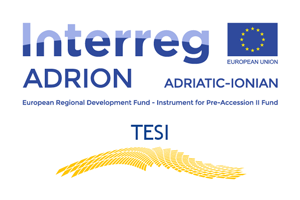 Interreg ADRION Adriatic Ionian region, European regional development fund – Instrument for pre-accession II fund, Axis 1– Innovative and smart region, Topic 2: Support the development of a regional innovation system for the Adriatic-Ionian area
Interreg ADRION Adriatic Ionian region, European regional development fund – Instrument for pre-accession II fund, Axis 1– Innovative and smart region, Topic 2: Support the development of a regional innovation system for the Adriatic-Ionian area
TESI aims at establishing a partnership that will work on the formulation of a Joint Master Programme on Social Innovation (JM). With this aim, the project focuses on two main objectives:
- to raise competences and skills on social innovation through capacity building approaches, with a focus on contemporary social challenges in public administration’s governance, urban regeneration, social entrepreneurship, welfare, migration;
- to establish a network of universities and research centres to define and implement the JM.
The partnership of 6 Universities and 1 research center from 6 Adrion Countries (Italy, Croatia, Greece, Albania, Serbia and Slovenia), with the support of the UNIADRION Network and other 4 associated partners from Italy, Slovenia, Albania and Bosnia and Herzegovina, will cooperate and work together in project’s activities to favour the development, promotion and implementation of the JM. The main outputs of the project will be the creation of an innovative transnational network of Universities, research institutions and business organisations working in the field of social innovation, of a Strategy and an Action Plan for the development of the JM in Social Innovation. Effective communication activities and preparatory measures such as dedicated training of 25 person per country involved, under a tight quality control mechanism, will lead to a sustainable and structured Master Programme.
The Master will award a degree from at least two partner Universities: this will be established during the project implementation taking into account national legislations. The programme envisages funded mobility schemes to partner universities and includes also a training/internship period to allow students writing their thesis in a real-life working or research context.
For that purpose, TESI embraces several business and consortia in the project partnership, with which agreements for hosting students will be established. To achieve this result, activities such as online training courses and a summer school will be organized, together with study visits to further strengthen all PPs’ expertise and mutual knowledge, as well as to promote the future master.
Lead partner: Alma Mater Studiorum – University of Bologna
Partner organisations:
- Znanstveno-raziskovalno središče Koper (Slovenia)
- Department of Special Account for Research Funds – Hellenic Open University (Greece)
- Faculty of Humanities and Social Sciences, University of Zagreb (Croatia)
- University Iuav of Venice (Italy)
- University of Belgrade – Faculty of Philosophy (Serbia)
- University of Tirana (Albania)
Project duration: 1. 2. 2023 –30. 9. 2023
Project holder: Alma Mater Studiorum – University of Bologna, Italy
Project leader at ZRS Koper: mag. Zorana Medarić
Participating institute at ZRS Koper: Institute for Social Studies
GUIDEPREP
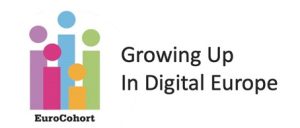 |
GUIDEPREP: Growing Up in Digital Europe Preparation Phase
European Commission: Preparatory phase of new ESFRI research infrastructure projects
Contract no.: 101078945
The Growing Up in Digital Europe Preparatory Phase (GUIDEPREP) project further develops the research infrastructure (RI) necessary to implement the GUIDE birth cohort study. This preparatory work will take place across 2022 to 2025 to ready the RI for the fullscale piloting of the GUIDE in 2026 and the first full wave of data collection in 2027. Once operational, GUIDE will collect data about individual children growing up in Europe until those children are aged 24-years in approximately 2053. GUIDE will be Europe’s first comparative birth cohort study of children’s and young people’s wellbeing. The aim of the GUIDE study is to track children’s personal wellbeing and development, in combination with key indicators of children’s homes, neighbourhoods, and schools, across Europe.
GUIDE will be an accelerated cohort survey including a sample of infants as well as a sample of school age children. Each Member State and Associated Country will provide nationally representative samples that are designed to retain statistical power throughout the lifetime of the study. The harmonized design will create the first internationally comparable, nationally representative, longitudinal study of children and young people in Europe. Currently the GUIDE RI is in its preparatory phase, which involves the establishment of necessary operational procedures and further crystallisation of the study concept and design. To realise the GUIDE full-scale pilot in 2026 and first wave of fieldwork in 2027, the RI needs to develop administratively, technologically, financially, scientifically, and legally. This GUIDEPREP proposal lays out clear aims for these developments in an interlocking system of activities that are shared across consortium partners and managed by the GUIDE leadership team.
Partner organisations:
- Manchester Metropolitan University (MMU)
- Ivo Pilar Institute of Social Science (IPI)
- Tallinn University (TLU)
- The University of Bremen (UBR)
- The Catalan Youth Agency (ACJ)
- Panteion University of Social and Political Sciences (PUA)
- The University of Debrecen (DE)
- University of Essex (UESSEX)
- University of Saints Cyril and Methodius (UCM)
- Daugavpils University (DU)
- University Institute of Lisbon (ISCTE-IUL)
- University of Jyvaskyla (JYU)
- University of Bologna (UNIBO)
- University College London (UCL)
- Generations and Gender Programme
- European Social Survey European Research Infrastructure Consortium (ESS ERIC)
- Norwegian University of Science and Technology (NTNU)
- KU Leuven (KU Leuven)
- University of Antwerp (University of Antwerp)
- Luxembourg Institute of Socio-Economic Research (LISER)
- European Centre for Social Welfare Policy and Research (the European Centre)
- University College Dublin (UCD)
- Institute for Social Studies (ZRS Koper)
- The French Institute for Demographic Studies (INED)
- The Univerisity of Helsinki
- Pompeu Fabra University (UPF)
- International Advisory Group (IAG)
Project duration: 1. 10. 2022 – 30. 9. 2026
Participating institute ZRS Koper: Institute for Social Studies
PITCH
Model for gender-sensitive intergration strategies based on Personalised, partIcipaTory, loCal, and multi-stakeHolder approaches — PITCH’ (‘action’)
European Commission: AMIF Action Grant
Contract no.: 101038534
PITCH is a 36-months project, aimed at establishing a common European ground to support the design and implementation of local integration strategies addressed to migrant women, based on a personalised, participatory, and multi-stakeholder approach. The project will do so by co-designing a model, translating it into 7 local strategies, and pilot-testing it with migrant women in Italy, Greece, Slovenia, Spain, Cyprus, Lithuania, and Sweden.
PITCH envisages: context analysis to identify local needs, map stakeholders and analyse existing integration strategies; co-design of the PITCH model for integration strategies during international working groups; translation of the model into 7 local integration strategies for migrant women, with the support of local advisory committees; development of clusters of activities and their flexible combination into personalised roadmaps, to respond to the individual needs of migrant women identified through a prior profiling process; finalisation of the local strategies and the PITCH model based on pilot-testing results; capacity buildings, local panel discussions, webinars, local events and an international conference to promote the strategies and the PITCH model, and to encourage interaction with the local community. 210 migrant women and the staff of 5 municipalities, 7 organizations/research centres and 1 network of municipalities, will directly benefit from PITCH. Through the events and CBP, the project will reach out to social operators, policy-makers, relevant stakeholders in the field of strategy making and the wider public.
Partner organisations:
- CESIE (Italy) – Lead partner
- Comune di Palermo (Italy)
- SYMPLEXIS (Greece)
- Dimos Neapoles – Sukeon (Greece)
- Znanstveno-raziskovalno središče Koper (Slovenia)
- Mestna občina Koper (Slovenia)
- International Consulting and Mobility Agency SRL (Spain)
- Ayuntamiento de Sevilla (Spain)
- CSI Center for Social Innovation LTD (Cyprus)
- Municipality of Ipsonas (Cyprus)
- VSI Diversity Development Group (Lithuania)
- SWIDEAS AB (Sweden)
- Zwiek Mias Baltyckich Stowarzenie (Poland)
Project duration: 1. 1. 2022-31. 12. 2024
Participating institute ZRS Koper: Institute for Social Studies
REBOOT NOW
REBOOT NOW – Prevention of Gender-Based Violence in Schools after Lockdown
European Commission: CERV Project Grants – DAPHNE
Contract no.: 101049567
REBOOT NOW is a child-centered transnational piloting initiative aimed at preventing and combating gender-based violence (GBV) among children/young people by supporting their psychological well-being through an evidence-based replicable service, with their active engagement. The project will design and implement psychological counselling desks at schools to support the recovery of young people and families from difficulties raised from measures against Covid-19 pandemic, in particular through positive actions that support well-being, mental health and capacity of young people for building up healthy relationships. It will build the capacity of schools and families in prevention and identification of at-risk cases of teen-dating violence; targeted educational activities (workshops, awareness raising campaigns and training) at schools, also involving families and older peers (aged 15-18), will further support the prevention of GBV among young people (aged 10-14). Activities include: 1) an itinerant school counselling desk for children and families, result of the cooperation between schools and stakeholders, to concretely support well-being and healthy relationships of children; 2) an online platform collecting existing information and training materials for adults (school staff and families) and children, and serving as online access point to the counselling desk; 3) a programme of educational peer-supported workshops to inform, raise awareness and empower students (aged 10-14) in schools, with the active engagement of older peers (aged 15-18) as co-trainers. Intended outcomes include: 1) Increased access to concrete psychological support services for young people, school staff and families; 2) Improved well-being, mental health, and capacity to construct healthy relationships in young people aged 10-14; 3) Increased capacity of professionals (teachers/ psychologists), school staff and families in prevention and identification of GBV cases or vulnerabilities.
Partner organisations:
- CESIE (Italy) – Lead partner
- KMOP (Greece)
- Hope for Children CRC Policy Center (Cyprus)
- Znanstveno-raziskovalno središče Koper (Slovenia)
- Animus Assiciacion Foundation (Bolgaria)
- Fondazione Hallfarten-Franchetti – Centro Studi Villa Montesca (Italy)
Project duration: 1. 3. 2022-28. 2. 2024
Participating institute ZRS Koper: Institute for Social Studies
CommunityLinkage
CommunityLinkage – Improving gender-based violence service provision through the empowerment of migrant women as community-based mentors, trainers, and agents of change
European Commission: CERV Project Grants – DAPHNE
Contract no.: 101049734
Community Linkage aims at establishing an effective connection between gender-based violence (GBV) services and migrant women communities to promote the early identification, prevention and support in the context of the post COVID-19 pandemic, through a community-based approach. OBJECTIVES: 1) To strengthen the capacities of migrant women for a better accompaniment of migrant GBV victims. 2) To identify needs and good practices of GBV and migrant community networks for GBV early detection and support. 3) To improve the capacity of professionals in GBV services for detection and support of migrant women. 4) To facilitate mutual learning in GBV between service providers and community networks. ACTIVITIES: Needs assessment of GBV services; Capacity-building and participatory action research with migrant women as agents of change against GBV; Community networking; Capacity-building of professionals implemented by migrant women; Strategic design of innovative coordination procedures between service providers and community networks; National conferences, EU conference, awareness-raising campaign and advocacy. IMPACT: 60 migrant women empowered and 160 engaged in community networking; 120 GBV professionals engaged and trained; 100 migrant women victims and potential victims of GBV benefited from pilot support actions in services; 15.000 stakeholders and general population reached through awareness-raising campaign; Enhanced knowledge of the intersectional dimensions of GBV in migrant women; Increased cross-national learning of service providers and peers; Envisioned innovative strategies to better detect and support GBV processes in migrant women.
Partner organisations:
- SURT, Fundacio de Dones Fundacio Privada (Spain) – vodilni partner
- CESIE (Italy)
- Kentro Ginaikeion Meleton Kai Ereyvnon Astiki mi Kerdoskopiki Etaireia (Greece)
- Znanstveno-raziskovalno središče Koper (Slovenia)
Project duration: 1.5.2022-30.4.2024
Participating institute ZRS Koper: Institute for Social Studies
COORDINATE – COhort cOmmunity Research and Development Infrastructure Network for Access Throughout Europe
COORDINATE – COhort cOmmunity Research and Development Infrastructure Network for Access Throughout Europe
European commission: HORIZONT 2020. INFRAIA-02-2020 – Integrating Activities for Starting Communities
Grant Agreement number: 101008589
The aspiration to secure the wellbeing of children and young people is explicit in Grand Challenges such as the UN’s Sustainable Development Goals. The EU has similarly highlighted the importance of securing the future of children and young people. It has become accepted that inequalities must be thought of longitudinally and not regarded as static events unrelated to prior events and future likelihoods. Policy makers must ensure that they base their policy interventions and adjustments on the best evidence available and this must include, inter alia, cohort survey data. COORDINATE will begin to fill the serious and extensive gaps in the availability of robust and suitable data for the monitoring and evaluation of child wellbeing in Europe. The COORDINATE project brings together 22 partners from 14 countries who will initiate the community of researchers and organisations that will drive forwards the coordinated development of comparative birth cohort panel survey research in Europe. COORDINATE will:
- Facilitate improved access to international birth cohort panel and cross-sectional survey data.
- Extend the consortium network to maximise EU and European coverage for a future Europe wide accelerated birth cohort survey.
- Undertake joint research in the form of a large-scale cohort pilot survey using a harmonised instrument and research design in key European countries.
The infrastructural community initiated by COORDINATE will benefit from enhanced access to current infrastructural data platforms and will promote the harmonisation of and improve access to international cohort panel survey data in the study of children as they grow up. COORDINATE continues the research initiated in the FP7 Measuring Youth Well Being project (GA613368) and the H2020 European Cohort Development Project (GA777449) to prepare the next phases of Europe’s first cross-national accelerated birth cohort survey: EuroCohort – Growing Up in Digital Europe (GUIDE).
Project partners:
- The Manchester Metropolitan University (Velika Britanija)
- University College Dublin, National University of Ireland, Dublin (Irska)
- European Research Infrastructure Consortium (Norveška)
- Sveuciliste u Zagrebu Filozofski Fakultet (Hrvaška)
- Tampereen Korkeakoulusaatio SR (Finska)
- Univerza v Ljubljani, Fakulteta za družbene vede (Slovenija)
- Institut društvenih znanosti Ivo Pilar (Hrvaška)
- Universidad Pompeu Fabra (Španija)
- Institut National D’etudes Demographiques (Francija)
- University of Essex (Velika Britanija)
- Znanstveno-raziskovalno središče Koper (Slovenija)
- Europaisches Zentrum fur Wohlfahrtspolitik und Sozialforschung (Avstrija)
- Instituto Universitário de Lisboa (Portugalska)
- Helsingin Yliopisto (Finska)
- Alma Mater Studiorum – Universita di Bologna (Italija)
- Stichting Centerdata (Nizozemska)
- University College London (Velika Britanija)
- Koninklijke Nederlandse Akademie van Wetenschappen (Nizozemska)
- Gesis-Leibniz-Institut fur Sozialwissenschaften EV (Nemčija)
- Ipsos GmbH (Nemčija)
- Kantar LTD (Velika Britanija)
- cApStAn SA (Belgija)
Project duration: 1. 4. 2021 – 31. 3. 2025
Project hodler: The Manchester Metropolitan University, MMU, Faculty of Arts and Humanities (Applied Social Sciences), Velika Britanija
Project leader: prof. Gary Pollock, PhD, MMU
Participating institute of the SRC koper: Inštitut za družboslovne študije
REInSER – Refugees’ Economic Integration through Social Entrepreneurship
REInSER – Refugees’ Economic Integration through Social Entrepreneurship 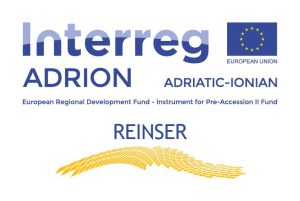
Interreg ADRION Adriatic Ionian region, European regional development fund – Instrument for pre-accession II fund, Priority Axis 1 – Innovation (Smart Region), Topic 2: Social Innovation.
The project deals with economic integration of refugees through social entrepreneurship, which is a pressing issue in the time of increased migration flows. It aims at tapping the potential of networking and knowledge transfer of transnational as well as cross-sectional cooperation of key stakeholders (business support organisations, intercultural mediators, NGOs dealing with integration of refugees and/or social entrepreneurship/social economy, governmental bodies and governmental organisations dealing with integration of refugees and/or social entrepreneurship/social economy, local and regional authorities, academia, refugees, asylum seekers, social economy entrepreneurs). The main objective of the project is to improve the economic, and consequently wider, integration of refugees and asylum seekers in host societies of partners’ area by using approaches of social economy and in particular social entrepreneurship. The long-term objective is to enhance possibilities for refugees to become active economic actors and agents of their own integration in given host society on one hand and to contribute to the local and regional sustainable economic development by generating employment and supporting the creation of new social responsible businesses on the other hand.
REInSER outputs involve:
- The creation of an innovative transnational cooperation network which will bring together national, regional and local governments, governmental bodies, NGOs, social entrepreneurs, academics and refugees in a common programme as the first of its kind in ADRION region.
- Transnational exchange of knowledge from study trips, best practices and experimental social ecosystem established through pilot actions and the insights from their evaluation, as well as the introduction of social innovation approaches supported by a broad range of local stakeholders which will create long-term competences.
- The preparation of a holistic transnational strategy and action plan for successful integration of refugees in host societies’ economies.
Partner organisations:
- Science and Research Centre Koper (Slovenia)
- Primorski tehnološki park (Slovenia)
- Alma Mater Studiorum – University of Bologna (Italy)
- Municipality of Brindisi (Italy)
- City of Osijek (Croatia)
- Hellenic Open University (Greece)
- Regional Development Agency Srem (Serbia)
- Development Agency of the Una-Sana Canton (Bosna and Herzegovina)
Project duration: 1. 2. 2021–31. 1. 2023
Project holder: ZRS Koper, Slovenia
Project leader at ZRS Koper: Maja Zadel, PhD
Participating institute at ZRS Koper: Institute for Social Studies
Webpage: https://reinser.adrioninterreg.eu/
FINISHED INTERNATIONAL RESEARCH PROJECTS
Keep me safe
Keep me safe: supporting youth peer development tackling sexual abuse
Erasmus+ Youth
National Agency of the project holder: UK British Council, in partnership with Ecorys
Partner organisations:
- Rinova Ltd., London (UK)
- Science and Research Centre Koper (Slovenia)
- Hope for Children UNCR Policy Centre (Cyprus)
- Eurocircle Association (Francija)
- Sdrudzenie Znam i Moga (Bolgarija)
- Sosu Ostjylland (Danska)
- London Youth (Velika Britanija)
Project start: 01. 04. 2019
Project holder: RINOVA LIMITED
Project leader at ZRS Koper: Blaž Lenarčič, PhD, Research Fellow
Participating institute ZRS Koper: Institute for Social Studies
MiCREATE – Migrant Children and Communities in a Transforming Europe
MiCREATE – Migrant Children and Communities in a Transforming Europe
European Commission: HORIZON 2020. SC6-CHANGING WORLD. Europe in a changing world – Inclusive, innovative and reflective societies.
Grant Agreement number: 822664
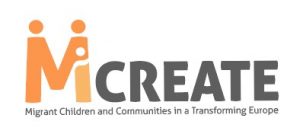 The overall objective of the project is to stimulate the inclusion of diverse groups of migrant children by adopting a child-centred approach to their integration at the educational and policy level. Stemming from the need to revisit the integration policies on the one hand and consistent with the specific focus of the call on the other hand, the research project aims at comprehensive examination of contemporary integration processes of migrant children in order to empower them. The project starts from the fact that European countries and their education systems encounter manifold challenges due to growing ethnic, cultural, linguistic diversity and thereby aims at:
The overall objective of the project is to stimulate the inclusion of diverse groups of migrant children by adopting a child-centred approach to their integration at the educational and policy level. Stemming from the need to revisit the integration policies on the one hand and consistent with the specific focus of the call on the other hand, the research project aims at comprehensive examination of contemporary integration processes of migrant children in order to empower them. The project starts from the fact that European countries and their education systems encounter manifold challenges due to growing ethnic, cultural, linguistic diversity and thereby aims at:
1) Identifying existing measures for the integration of migrant children at the regional and local level through secondary data analysis;
2) Analysis of the social impacts of these integration programmes through case studies in ten countries applying qualitative and quantitative child-centred research;
3) Development of integration measures and identification of social investment particularly in educational policies and school systems that aim to empower children.
The project is problem-driven and exploratory at the same time. Its exploratory part mainly concerns a child-centred approach to understanding integration challenges, migrants’ needs and their well-being. However, the findings of the open-ended exploratory research will be used in an explicitly problem-driven way – with an aim to stimulate migrant inclusion, to empower migrant children and build their skills already within the (participatory) research. This will be done through the activities of the Integration Lab and Policy Lab, where children’s voices, fieldwork and desk research findings will be translated into practices and measures for educational professionals and practitioners as well as into a child-centred migrant integration policy framework to stimulate social inclusion and successful management of cultural diversity.
Partner organisations:
- Science and Research Centre Koper (Slovenia)
- Hope for Children UNCR Policy Centre (Cyprus)
- The Manchester Metropolitan University (United Kingdom)
- Hellenic Open University (Greece)
- CNRS (France)
- CESIE (Italy)
- DYPALL Network: Developing Youth Participation at Local Level (Portugal)
- The Peace Institute (Slovenia)
- University of Ljubljana Faculty of Computer and Information Science (Slovenia)
- Syddansk Universitet (Denmark)
- Universitat de Barcelona (Spain)
- Stowarzyszenie Interkulturalni (Poland)
- Universität Wien (Austria)
- Udruga Centar za mirovne studije (Croatia)
- Faculty of Design, Associated member of University of Primorska (Slovenia)
Project duration: 1. 1. 2019 – 31. 12. 2021
Project holder: ZRS Koper, Slovenia
Project leader at ZRS Koper: Mateja Sedmak, PhD, Principal Research Fellow
Participating institute ZRS Koper: Institute for Social Studies
BASE - Migrant and refugee child-friendly support services in cases of sexual-based violence
BASE – Migrant and refugee child-friendly support services in cases of sexual-based violence
Programme: European Commission: “Rights, Equality & Citizenship” (RDAP-GBV-AG-2017)
Project start: 1. 1. 2019
Project holder: Hope for Children, CRC Policy Center, Cyprus
Project leader at ZRS Koper: Blaž Lenarčič, PhD, Research Fellow
Participating institute ZRS Koper: Institute for Social Studies
Migrant and refugee child-friendly support services in cases of sexual and gender-based violence (BASE) addresses the need to counteract gender-based-violence (GBV) against refugee/migrant girls through the development and sustainability of strategies to nurture inclusive communication and a culture of trust between support service professionals, victims, families and communities, thus preventing victim re-traumatization and encouraging reporting of GBV. The project contributes to the development and sustainability of inclusive support services in cases of GBV against girls by Empowering migrant/refugee women as cultural advisors; builds the capacity of professionals to communicate and address their needs and their families’; supports & promotes intersectional cooperation; raises awareness on the problem, its consequences and on the provision of support
Partner organisations:
- Znanstveno-raziskovalno središče Koper (Slovenia)
- Hope for Children UNCR Policy Centre (Cyprus)
- ABIF (Austria)
- KMOP (Greece)
- Rinova (United Kingdom)
- CESIE (Italy)
- APODA (Portugal)
- GAF (Bulgaria)
REMix - The university as an advocate for responsible education about migration in Europe
REMix – The university as an advocate for responsible education about migration in Europe
Programme: Erasmus+
Project start: 1. 10. 2018
Project holder: Háskólinn á Akureyri, Iceland
Project leader at ZRS Koper: Barbara Gornik, PhD, Assistant with Doctorate
Participating institute ZRS Koper: Institute for Social Studies
REMix focuses on the social, educational and intellectual role of the European university as an agent advocating for inclusion, equality and social justice in matters relating to migration. The engagement of universities in public contemporary debates plays an important role in shaping student‘s understanding of societal matters and democratic and civic engagement. The main objectives of the project are:
- To strengthen the role played by the university in advocating for constructive, responsible and inclusive education about migration in Europe.
- To facilitate and improve the possibilities for immigrants and refugees to have access to higher education.
- To encourage European universities to provide a rational vehicle for contributions to the knowledge and the informed debate around migration.
The project addresses the specific need to engage university students in reflection on the important societal issues of migration and inclusion. It proposes to create an innovative interactive course for university students in several European universities; the format of the course allows students at the transnational level to interact and work with each other and stimulate cross-cultural discussions and experiences. Project targets and involves three groups of individuals within the project: (1) students and future researchers and practitioners who get to develop cross-cultural skills and a sensitivity to diversity by taking the course; (2) migrants in European countries who will profit from the exchange of ideas about best practices to welcome them at the university and (3) university teachers learning to collaborate across Europe in order to develop a common course on migration.
Partner organisations:
- Háskólinn á Akureyri (Iceland)
- Znanstveno-raziskovalno središče Koper (Slovenia)
- Aristotelio Panepistimio Thessalonikis (Greece)
- Universidade da Madeira (Portugal)
- ARMES progetti (Italy)
- Università degli Studi di Firenze (Italy)
INTEGRA - Cross-border network for migrant women: social integration, sexual and reproductive health
Cross-border network for migrant women: social integration, sexual and reproductive health
Programme: Interreg V-A Italija-Slovenija 2014-2020
Project start: 14. 2. 2018
Project holder: Dipartimento di Scienze Politiche e Sociali, Italy
Project leader at ZRS Koper: Mateja Sedmak, PhD, Principal Research Fellow
Participating institute ZRS Koper: Institute for Social Studies
Due to the proximity of the “Balkan Paths” the research area (FVG & Slovenian Coastal area and Inner Carniola) faces the growth in the number of immigrants from the Middle East and Africa. The presence of women from very different cultures brings new challenges related to integration at all institutional levels. The project addresses the less research topic of protecting the sexual and reproductive health of migrant women coming from cultures with strong patriarchal patterns. Firstly, the assessment of the phenomenon will be done by using interdisciplinary approach (medicine, anthropology, sociology, demography etc.). This will be followed by the development of guidelines for health and social workers. In addition, training for social and health professionals is foreseen to address the problems of intercultural communication and, in particular, medical training of health professionals on the treatment of migrants, even in difficult cases such as female genital mutilation. The project will be carried out in the cross-border area for two reasons: migration is a phenomenon affecting the border areas and another reason being the exchange of good practices and the formulation of common guidelines. Italian healthcare institutions have many experiences with the care of immigrants from countries of Asia and Africa, while such patients in Slovenia are a new phenomenon, as Slovenian health structures have so far faced problems mostly with the sexual and reproductive health of women, especially from the countries of the former Yugoslavia.
Partner organisations:
- Znanstveno-raziskovalno središče Koper (Slovenia)
- Department of Political and Social Sciences of the University of Trieste (Italy)
JudEx+: Towards a justice suitable for children in cases of sexual violence against children
JudEx+: Towards a justice suitable for children in cases of sexual violence against children
Program: EC – “Rights, Equality & Citizenship” (JUST/2014/RCHI/AG/PROF/7036)
Period: 1. 10. 2015 – 30. 9. 2017
Head of the project: Hope for Children, UNCRC Policy Center, Cyprus
Head of the project at ZRS Koper: PhD Mateja Sedmak, Principal Research Fellow
Institute of ZRS Koper: Institute for Social Studies
JudEx+ was a project focused on supporting a positive judicial experience for children victims of sexual violence. The project aimed to improve the child’s experience when entering the judicial system in cases of sexual violence against children by improving the skills of professionals involved in representing children in judicial proceedings through trainings which take into consideration children’s rights, their developmental needs, and social background in countries where the Lanzarote Convention has been ratified.
Partner organisations:
- Univerza na Primorskem, Znanstveno-raziskovalno središče (Slovenia)
- Hope for Children UNCR Policy Centre (Cyprus)
- Frederick University (Cyprus)
- RINOVA (UK)
- CESIE (Italy)
- Know and Can (Bulgaria)
- Folkuniversitetet (Sweden)
MinAs - In Whose Best Interest? Exploring Unaccompanied Minor's Rights Through the Lens of Migration and Asylum Procedures
MinAs – In Whose Best Interest? Exploring Unaccompanied Minor’s Rights Through the Lens of Migration and Asylum Procedures
Programme: European Commission: (DG HOME/2013/CFP/PPUAM Unacompanied Minors)
Duration: 15. 6. 2014 – 15. 12. 2015
Project holder: University of Primorska, Science and Research Centre
Project leader: Mateja Sedmak, PhD, Principal Research Fellow
Participating institute ZRS Koper: Institute for Social Studies
The project »In whose best interests? Exploring unaccompanied minors’ rights through the lens of migration and asylum processes (MinAs)« was a research project carried out in four European Countries (Slovenia, Austria, France and United Kingdom) in the period from June 2014 to December 2015. The project was financed by European Commission and its main aim was to locate and suggest better solution regarding procedures and protection measures of unaccompanied minors (UAM).
The project examined UAM’s reception, protection, asylum and return procedures and focuses on: 1) The concept of best interest of the child (BIC) and 2) The formal processes of best interest determination (BID).
Partner organisations:
- Univerza na Primorskem, Znanstveno-raziskovalno središče (Slovenija)
- University of Brighton (Great Britain)
- Centre national de la recherche scientifique (France)
- Slovenska Filantropija (Slovenia)
- Inštitut Republike Slovenije za socialno varstvo (Slovenia)
- Universität Wien, Institut für Politikwissenschaft (Austria)
Bridges of Expertise to Fight Gender Based Violence
Bridges of Expertise to Fight Gender Based Violence
Programme: EuropeAid – IPA
Duration: 1. 2. 2014 – 1. 11. 2015
Project holder: Kapadokya Kadın Dayanışma Derneği
Project leader: Mateja Sedmak, PhD, Principal Research Fellow
Participating institute ZRS Koper: Institute for Social Studies
Partner institutions:
- Kapadokya Kadın Dayanışma Derneği (Turkey)
- Nevşehir Belediyesi (Turkey)
- Kırşehir Belediyesi (Turkey)
- Karadeniz Ereğli Belediyesi (Turkey)
- Zonguldak Belediyesi – Zonguldak Municipality (Turkey)
- Nevşehir Üniversitesi/NÜKÇAM (Turkey)
- C.M.C. HOPE – ONLUS (Italy)
- Provincia di Gorizia (Italy)
- Comune di Monfalcone (Italy)
- Comune di Sacile (Italy)
- Društvo za razvijanje prostovoljnega dela Novo Mesto (Slovenia)
- Center za socialno delo Koper (Slovenia)
- Association of Local Democracy Agencies (France)
OTHER RESEARCH PROJECTS
Intercultural connecting on the wings of stories
Intercultural connecting on the wings of stories
The aim of the project was to encourage cooperation between different cultures through fairy tales as the bearers of cultural identity and thus mean of intercultural dialogue.
The project aimed to contribute to intercultural connecting, reducing prejudices and stereotypes, developing intercultural competences and mutual respect and understanding while raising awareness on the meaning and benefits of intercultural dialogue and coexistence amongst preschool and school children. In the scope of the project we prepared workshops and presentations at elementary school, secondary schools and kindergartens, booklet of folk stories, and ensured media coverage on the subject.
Commissioned by: Ministry of the Interior
Period: 6. 1. 2015 – 30. 6. 2015
Head of the project at ZRS Koper: PhD Mateja Sedmak, Principal Research Fellow
Head of the project: Znanstveno-raziskovalno središče, Univerza na Primorskem
Institute of ZRS Koper: Institute for Social Studies
SOS - STRESS, ABSENCE, DISTRESS: Establishing and Protecting a Healthy Work Environment as the Key to Company Success
SOS – STRESS, ABSENCE, DISTRESS: Establishing and Protecting a Healthy Work Environment as the Key to Company Success
The ” SOS ” project came from the actual needs of companies and non-metallic and timber industry concerning the problem of stress, burn, absenteeism, reduced productivity (presentism), fluctuation and the reconciliation of work and family life.
The aim of this study was to identify key factors and the effects of stress and burnout in the workplace in Slovenian micro, small and medium-sized enterprises. Findings of the research were followed by recommendations for reducing stress at work and strengthening level of awareness of the importance of health and healthy working environment among employees, employers and policy makers.
The overall objective of the project was to conduct a comprehensive analysis of all the above factors in order to prepare expert guidelines, strategies and approaches to effective integrated prevention and resolution of issues in the respective fields and, consequently, to more effective protection of health, work environment and overall work process.
Programme: Javni razpis za sofinanciranje projektov socialnih partnerjev na področju izboljšanja delovnega okolja
Period: 1. 3. 2010–30. 9. 2012
Head of the project: Znanstveno-raziskovalno središče, Univerza na Primorskem
Institute of ZRS Koper: Institute for Social Studies
